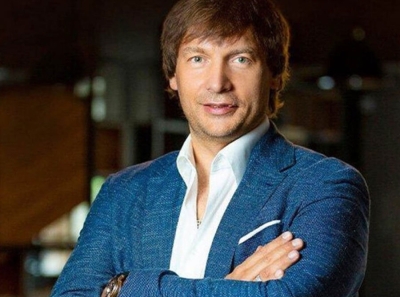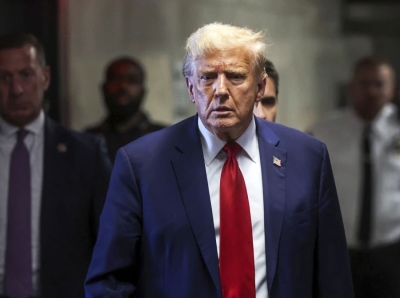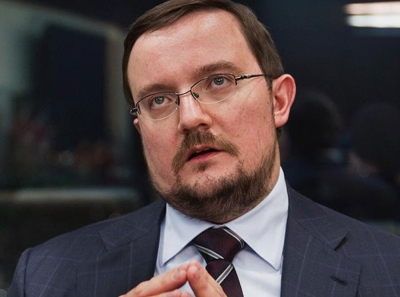EU accession talks: Ukraine all set to join the bloc?
The vote to open accession negotiations with Ukraine at last week’s EU summit remains a big topic of discussion in Europe’s press. Commentators are worried by the fact that the required unanimity for the decision was only achieved because Hungary’s Prime Minister Viktor Orbán left the room at the crucial moment. But looking forward also raises major questions about the process.
No resorting to clever excuses this time
The political value of this step is enormous, La Repubblica comments approvingly:
“It marks an important turning point. Especially on the frontline of the war between democracies and totalitarianisms. There has been much talk in recent months of a certain ‘fatigue’ on the part of the West in its support for Ukraine. ... If European leaders had also shared in [the US’s] diminishing vigour in the defence of the democratic order, the veto that Hungary’s Orbán had imposed on the opening of negotiations with Ukraine would have given them the perfect excuse for a delay for which no one would have had to take responsibility.”
Europe can be proud of itself
Putin’s calculation didn’t work out this time either, LB.ua writes:
“This is a moment of pride for all Europe, which Putin long considered to be completely toothless. He thought that if the US delayed its aid, the EU would also give in to Russia’s pressure and abandon Ukraine. ... He miscalculated — just as he always does, by the way. Putin’s calculation was quite simple: he saw the heads of government of Hungary and Slovakia, Orbán and Fico, as the players who would put the brakes on all European integration prospects for Ukraine. But what is the outcome of today’s summit?”
Bringing war home
Eric Bonse is not convinced on his blog Lost in EUrope:
“Geopolitical reasons are in fact the only reasons in favour of starting accession negotiations. The aim is to give Ukraine hope in its deadlocked military situation and to rescue it politically and economically from the Russian attack. However, there are weighty arguments against this. The first is that one should not negotiate accession with a country that is at war. This applies to the EU just as much as it does to Nato — if not more so. After all, the EU wants to be a union of peace that brings stability and prosperity to the European continent. With Ukraine, however, it is bringing war instead, and unsafe borders and occupied territories to boot.”
Everyone happy
The pro-government Mandiner attributes the release of EU funds for Hungary to Orbán’s clever veto threats:
“Hungary gets the funds it is entitled to, the guarantee of the rights of the Hungarian minority in Transcarpathia and the greatest possible distance from a decision that it does not want to support. The leaders of the large EU member states are given the satisfying certainty that they are still sovereign leaders of the EU in its most delicate moments. And Ukraine gets a little vitamin pill of motivation, which it probably desperately needs in view of the current situation on the front line.”
A non-starter without Washington
Support from Brussels alone won’t be enough for Ukraine, Denník Postoj reminds readers:
“Even the good news from the EU can’t make up for the shortfall in US military aid to Ukraine. Ukrainian military commanders are now openly saying that if US military aid dries up they will not be able to hold back the Russian troops, who have larger ammunition reserves. If the burden remains solely on the shoulders of European countries, the Kremlin can start popping the champagne.”
Get tough on troublemakers
Brussels needs to take a harder line against Hungary and its veto games, demands Verslo žinios:
“The European lawyers must get active. There are a number of solutions that could be found. Perhaps a country that undermines the common interests of the EU and European security could be denied all payments from the common fund, have its voting or veto rights suspended, be excluded from participating in joint processes and even — as an extreme measure — have its membership suspended. Incidentally, similar clouds are also hovering over Nato. ... If Article 5 had to be activated, we would likely not only have to hear Orbán’s ‘arguments’, but also those of Turkey.”









